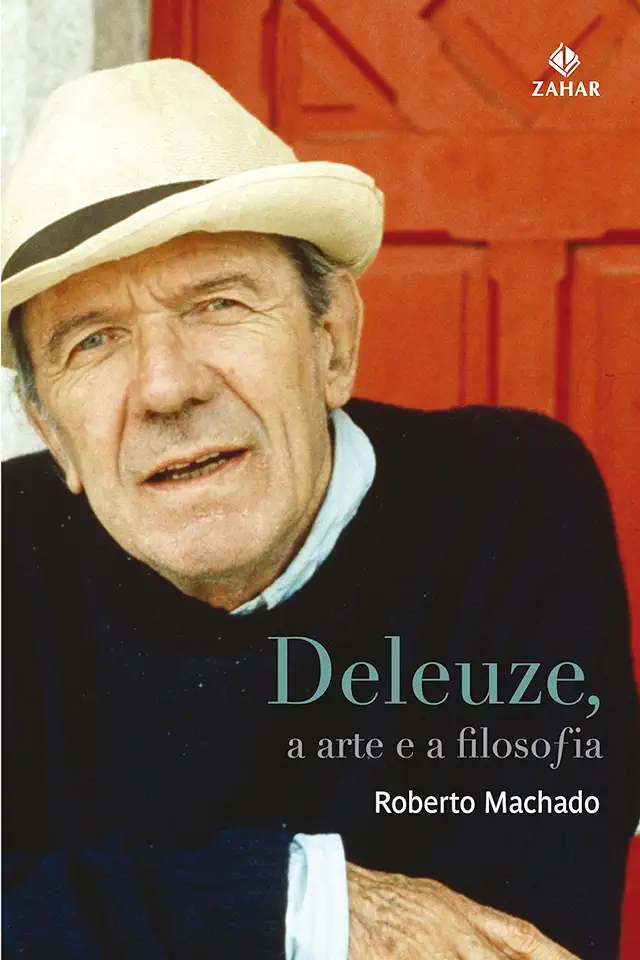
Deleuze, Art and Philosophy - Roberto Machado
Deleuze, Art and Philosophy: A Comprehensive Guide
Introduction
In his seminal work, "Deleuze, Art and Philosophy," Roberto Machado offers a comprehensive exploration of the profound impact of Gilles Deleuze's philosophical thought on the realm of art. Through a meticulous analysis of Deleuze's key concepts and their application to various artistic disciplines, Machado presents a compelling argument for the transformative power of Deleuze's ideas in shaping our understanding and appreciation of art.
Deleuze's Philosophical Framework
At the heart of Deleuze's philosophy lies a radical rethinking of traditional notions of representation, subjectivity, and the nature of reality. Machado meticulously unpacks these concepts, demonstrating how Deleuze's philosophy challenges conventional frameworks and opens up new avenues for understanding the creative process and the experience of art.
Art as Creation, Not Representation
One of the central tenets of Deleuze's philosophy is his rejection of the idea of art as a mere representation of reality. Instead, he posits art as a creative force that actively produces new realities and transforms our perception of the world. Machado delves into Deleuze's concept of the "rhizome" to illustrate how art can create multiplicities and break free from the constraints of conventional narratives.
The Subject and the Creative Process
Deleuze's philosophy also challenges traditional notions of the subject as a fixed and autonomous entity. Machado explores how Deleuze's concept of the "body without organs" disrupts the binary opposition between subject and object, opening up new possibilities for understanding the creative process as a dynamic interplay of forces.
Art and the Experience of the Virtual
Central to Deleuze's philosophy is the concept of the "virtual," which he posits as a realm of pure potentiality that exists beyond the limitations of the actual. Machado demonstrates how Deleuze's notion of the virtual can be applied to art, revealing the transformative power of art to create new realities and evoke profound emotional responses.
Deleuze and the Visual Arts
Machado dedicates a significant portion of his book to exploring the application of Deleuze's philosophy to the visual arts. He examines how Deleuze's ideas have influenced the work of renowned artists such as Francis Bacon, Gerhard Richter, and Anish Kapoor, demonstrating how these artists have challenged conventional modes of representation and embraced the creative potential of the virtual.
Deleuze and Literature
Machado also delves into the impact of Deleuze's philosophy on literature, analyzing the works of authors such as Marcel Proust, James Joyce, and Salman Rushdie. He shows how these writers have employed Deleuze's concepts to create innovative literary forms that disrupt traditional narrative structures and explore the complexities of human experience.
Deleuze and Cinema
In his exploration of Deleuze's influence on cinema, Machado examines the work of directors such as Jean-Luc Godard, Martin Scorsese, and David Lynch. He demonstrates how these filmmakers have utilized Deleuze's ideas to challenge conventional cinematic techniques and create immersive experiences that engage the viewer on a visceral level.
Deleuze and Music
Machado concludes his book by exploring the application of Deleuze's philosophy to music. He analyzes the work of composers such as John Cage, Pierre Boulez, and Miles Davis, revealing how these musicians have pushed the boundaries of musical expression and created new sonic landscapes that challenge our traditional understanding of music.
Conclusion
"Deleuze, Art and Philosophy" is a tour de force that offers a comprehensive and engaging exploration of the profound impact of Gilles Deleuze's philosophy on the realm of art. Through his meticulous analysis of Deleuze's key concepts and their application to various artistic disciplines, Roberto Machado presents a compelling argument for the transformative power of Deleuze's ideas in shaping our understanding and appreciation of art. This book is a must-read for anyone interested in the intersection of philosophy and art, and for anyone seeking new perspectives on the creative process and the nature of artistic experience.
Enjoyed the summary? Discover all the details and take your reading to the next level — [click here to view the book on Amazon!]